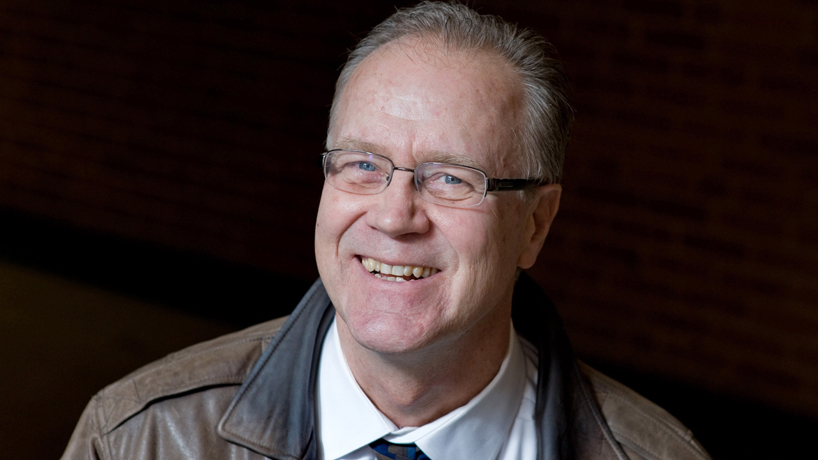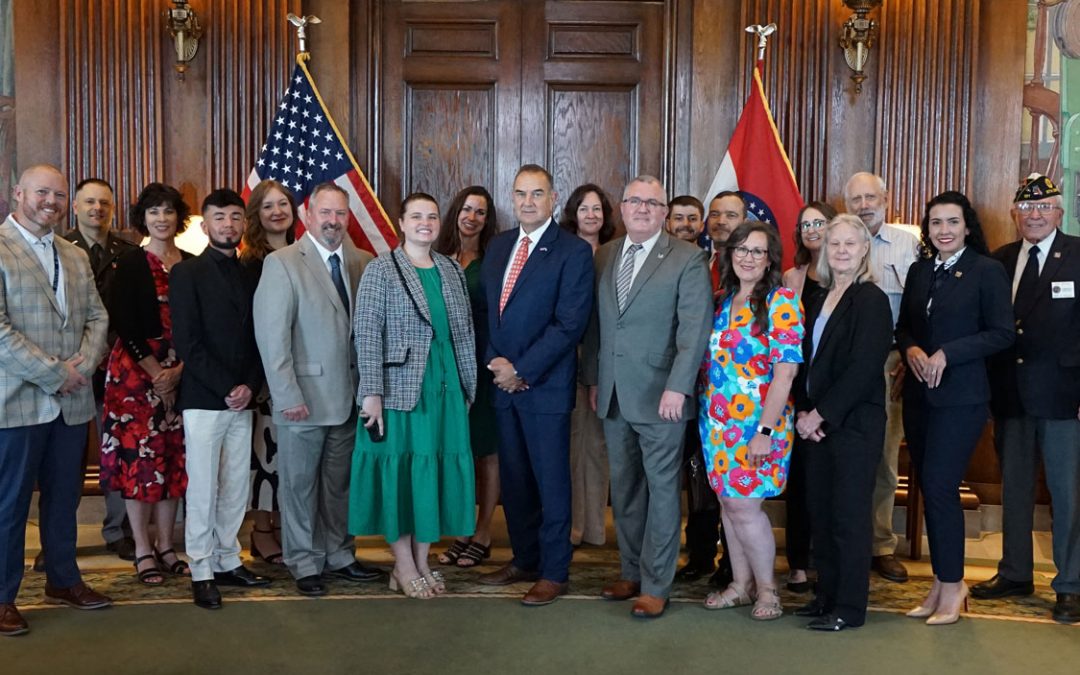
Todd Swanstrom discussed middle neighborhoods and why it’s important to care for them with host D.J. Wilson on the “Collateral Damage” podcast produced by KDHX (88.1 FM). (Photo by August Jennewein)
Todd Swanstrom was reflecting on his own upbringing in St. Paul, Minnesota, in a neighborhood that he said is shared by both millionaires and modest apartment dwellers, all within a few blocks of each other.
“That is becoming increasingly rare in American cities,” Swanstrom, the E. Desmond Lee Endowed Professor in Community Collaboration and Public Policy at the University of Missouri–St. Louis, said this week while appearing on the “Collateral Damage” podcast produced by KDHX (88.1 FM).
As Swanstrom explained to host D.J. Wilson, neighborhoods have been pulling further and further apart – some becoming more and more affluent while others watch their poverty rates soar, sometimes above 30 and 40 percent.
It’s a problem that has become particularly pronounced in St. Louis.
“What my research has shown is that the middle neighborhoods are disappearing over the last 30 years,” Swanstrom said. “Those neighborhoods that were let’s say between 75 percent and 125 percent of the median regional income, the ones in the middle.”
It’s created a fractured map throughout the city, which has seen property values spike in some neighborhoods while those on the north side of St. Louis have continued to decline.
This phenomenon creates problems for the overall health of the city.
“We have policies for very deprived neighborhoods, and there’s a lot of attention being paid to gentrifying neighborhoods,” Swanstrom said. “By far, what I think you ought to put a lot more attention to is those in the middle that are on the edge – that if we don’t do something, they’ll tumble down.
“And many more neighborhoods are tumbling down than tumbling up in the city.”
Swanstrom, a professor of political science and public policy administration at UMSL, joined a panel focused on middle neighborhoods in April at Washington University in St. Louis. The discussion followed a presentation by Paul Brothy, editor of a recently released book titled “On the Edge: America’s Middle Neighborhoods.”
The panelists talked specifically about neighborhoods such as Bevo and Fox Park in south St. Louis, North Pointe in north St. Louis and even Maplewood and Pasadena Hills in St. Louis County.
As Swanstrom told Wilson, those are neighborhoods that share an edge with more struggling communities and are therefore at greater risk of declining themselves.
“When things start tumbling down, there’s displacement, social problems, there’s vacancies, there’s abandonment,” Swanstrom said. “Once that ball starts rolling down the hill, it’s hard to stop.”
He argued for a “public health approach” to helping these neighborhoods remain vibrant, suggesting it would be more cost-effective than waiting to fix them when they require intensive care.
Many of these neighborhoods have amenities – anything from bars and restaurants to public parks or historically significant housing – Swanstrom believes are worth protecting.
His research shows that middle neighborhoods also tend to be more diverse, which means they can help provide opportunity for African Americans to gain equity.
“It’s a huge injustice that African Americans have not been able to accumulate equity through home ownership,” Swanstrom said. “If we could stabilize these neighborhoods, where African Americans own homes, have them start to go up in value, then these families can start to accumulate some equity, which is very important.”
Swanstrom and Wilson also discussed gentrification, the relationship between the city of St. Louis and St. Louis County and cities as the “laboratories of democracy,” among other topics.
Find the full interview – episode 109 of the podcast – here.














